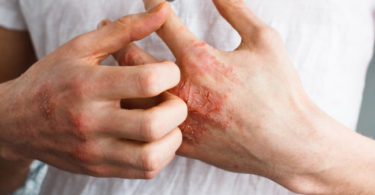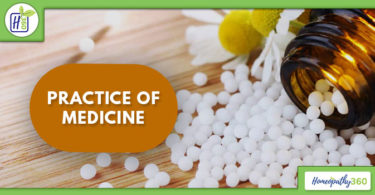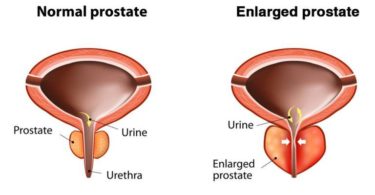Myasthenia gravis involves episodic muscle weakness and easy fatigability caused by auto antibody and cell mediated destruction of acetyl choline receptors. It is more common in young women but may occur at any age, symptoms worsen with muscle activity and lessen with rest.
Myasthenia gravis develops commonly with women aged 20-40 years. It results from an autoimmune attack on post synaptic ACH receptors, which disrupts neuro muscular transmission. The trigger for auto antibody production is unknown. But the disorder is associated with abnormalities of the thymus, thyrotoxicosis and other auto immune diseases. The role of the thymus in myasthenia is unclear, but 65% of patients have thymic hyperplasia, and 105 have a thymoma. About half of the thymomas are malignant. Precipitating factors including infection, surgery and certain drugs( Mg sulfate, Ca channel blockers etc. )
Some patients with generalised myasthenia have no antibodies to acetylcholine receptors ( AchR) in serum. About half of the patients have antibodies to muscle specific receptor thyrosine kinase., a surface membrane enzyme that helps AchR molecules aggregate during development of the neuro muscular junction. Anti- MuSk antibodies is still under study, but patients with them may be less responsive with anticholinesterase drugs and require more aggressive early immunothrapy
than patients who have AchR antibodies.
Symptoms of Myasthenia gravis
• Double vision
• Loss of normal facial expression
• Drooping of eyelids
• Difficult swallowing
• Weakness of the arms and legs
• Difficult clear speech
• Dyspnoea or difficult breathing
• Decreased functions of arms, legs, and neck muscles
• Weakness of intercostal muscles
• Impaired gas exchange
• Impaired motor movements
• Condition gets flared up after a brief period of normal muscle function and aggravated as the muscle is used.
Complications of myasthenia gravis
• Ocular and facial complications- Difficulty in closing eyes, aspiration, impaired communications and nutrition
• Musculoskeletal complications- Inability to perform ADLs and self activities, complications related to immobility, myasthenic and cholinergic crises.
• Respiratory complications- Decreased ability to walk, eat, and perform other ADLs, pneumonia
• Nutritional complications- Weight loss, dehydration, malnutrition, aspiration.
DIAGNOSIS OF MG:
History : diplopia, ptosis, weakness
Fluctuation and fatigue : worse in repeated activities, improved byb rest.
Physical examination: ptosis, diplopia,
Motor power survey: quantitative testing of muscle strength, forward arm abduction time ( 5 min)
Vital capacity
Absence of other neurologic signs.
Laboratory testing: Anti- AchR radio immune assay: 85% positive in generalized MG. 50% in ocular MG
40% of AchR Antibody – negative patients with generalized MG have anti-MuSK anti bodies.
Treatment :
Anti cholinesterase drugs and plasmapheresis to relieve symptoms
Supportive care
HOMOEPATHIC THERAPEUTICS
Alumina
• Muscular paralysis.
• People lack of vital heat, prematurely old people due to debility.
• Heaviness, staggering and sluggishness with very bad constipation are the characteristics of the remedy.
• Extremities feel paralyzed; leg feels asleep specially when sitting with legs crossed.
• Heels feel numb, tenderness in soles, feel soft and swollen.
• Inability to walk especially when eyes are open or in daytime.
Cocculus indicus
• Homeopathic medicine for myasthenia gravis that has weakness of every muscle.
• Affect primarily to the voluntary muscle system then sensorium.
• In muscular system it produces paralysis and titanic convulsion and in sensorium it produces vertigo and confusion.
• Paralytic weakness in muscle.
• Weakness of cervical muscles cannot support head.
• Painful stiffness in neck when moving it.
• Hands feel numb and asleep.
• Paralytic immobility of lower limbs.
• Numbness of sloes go to sleep while sitting.
Gelsemium
• Homeopathic medicine for myasthenia gravis that has paralysis of various groups of muscles about the eyes, throat, chest, larynx, sphincter, extremities, etc.
• Muscular weakness. Complete relaxation and prostration. Lack of muscular co-ordination
• General prostration. Dizziness, drowsiness, dullness, and trembling.
• Loss of power of muscular control.
• Excessive trembling and weakness of all limbs. Hysteric convulsions.
• Fatigue after slight exercise.
Conium mac
• Conium is an excellent remedy, such as difficult gait, trembling, sudden loss of strength while walking, painful stiffness of legs.
• It corresponds to the debility, hypochondriasis, urinary troubles, weakened memory, sexual debility found here.
• Great debility in the morning in bed.
• Weakness of body and mind, trembling, and palpitation.
Curare
• Homeopathic medicine for myasthenia gravis that has muscular paralysis without impairing sensation and consciousness.
• Paralysis of respiratory muscles.
• Reflex action diminished
• Tired pain up and down spine.
• Arms weak, heavy. Cannot lift the fingers.
• Weakness of hands and fingers in pianists.
• Legs tremble; give way in walking. Debility; paralysis.
Plumbum metallicum
• Lead paralysis is chiefly of extensors, forearm or upper limb, from center to periphery with partial anaesthesia (loss of sensation) or excessive hyperesthesia(over-excitability) of the nerve, preceded by pain.
• Localized neuralgic pains, neuritis.
• The blood, alimentary and nervous systems are the special seats of action of Plumbum.
• Progressive muscular atrophy. Infantile paralysis. Locomotor ataxia.
• Excessive and rapid emaciation. Bulbar paralysis. Important in peripheral affections.
• The points of attack for Plumbum are the neuraxons and the anterior horns.
• Paralysis of single muscles. Cannot raise or lift anything with the hand. Extension is difficult.
• Paralysis from overexertion of the extensor muscles in piano players.
• Pains in muscles of thighs; come in paroxysms. Wrist-drop. Cramps in calves.
• Stinging and tearing in limbs, also twitching and tingling, numbness, pain or tremor. Paralysis.
• Feet swollen. Pain in atrophied limbs alternates with colic.
• Loss of patellar reflex. Hands and feet cold.
• Pain in right big toe at night, very sensitive to touch.
Zincum metallicum
• The word “fag” covers a large part of zinc action.
• Poisoning from suppressed eruptions or discharges.
• The nervous symptoms of most importance. Impending brain paralysis.
• Period of depression in disease.
• Pain, as if between skin and flesh.
• In chronic diseases with brain and spinal symptoms, trembling, convulsive
twitching and fidgety feet are guiding symptoms.
• Lameness, weakness, trembling and twitching of various muscles.
• Feet in continued motion; cannot keep still.
• Transverse pains, especially in upper extremity.
• Soles of feet sensitive. Steps with entire sole of foot on floor.





